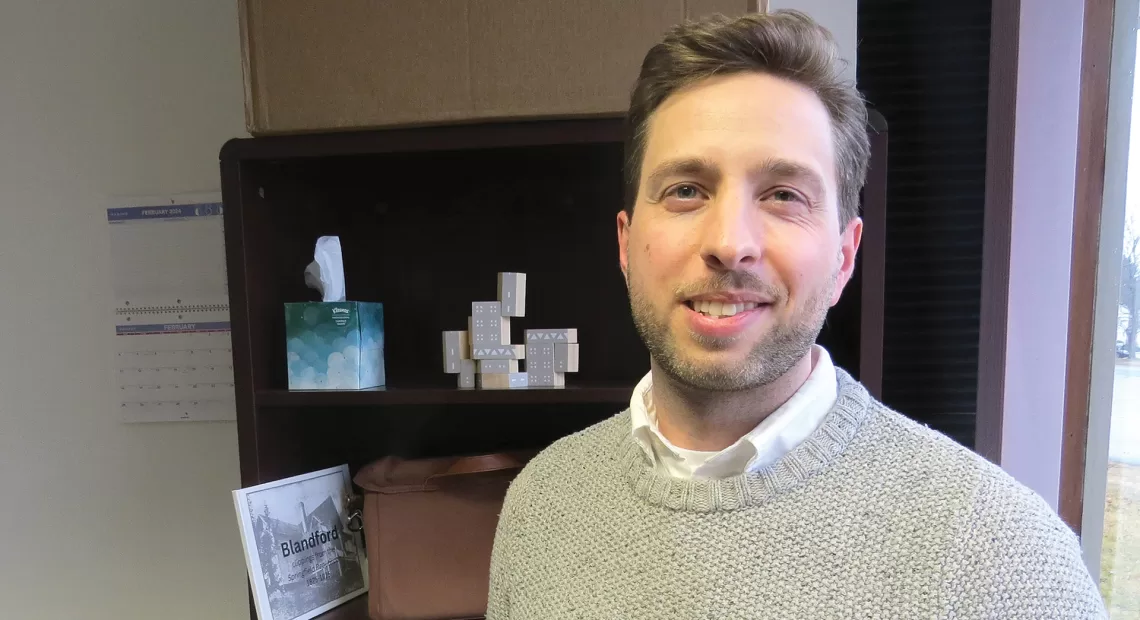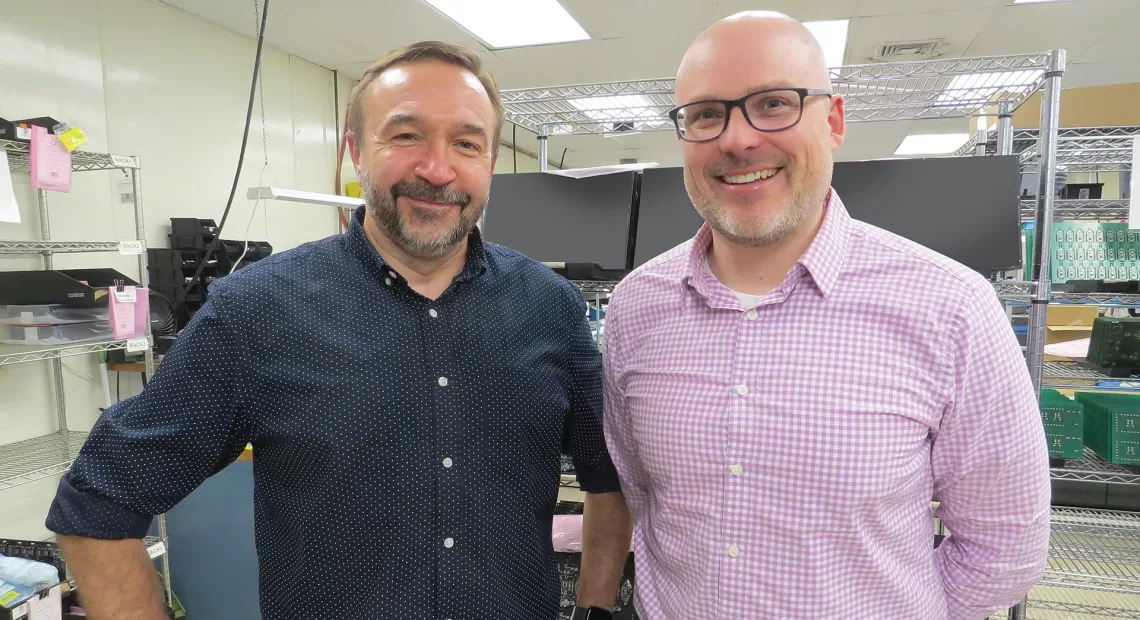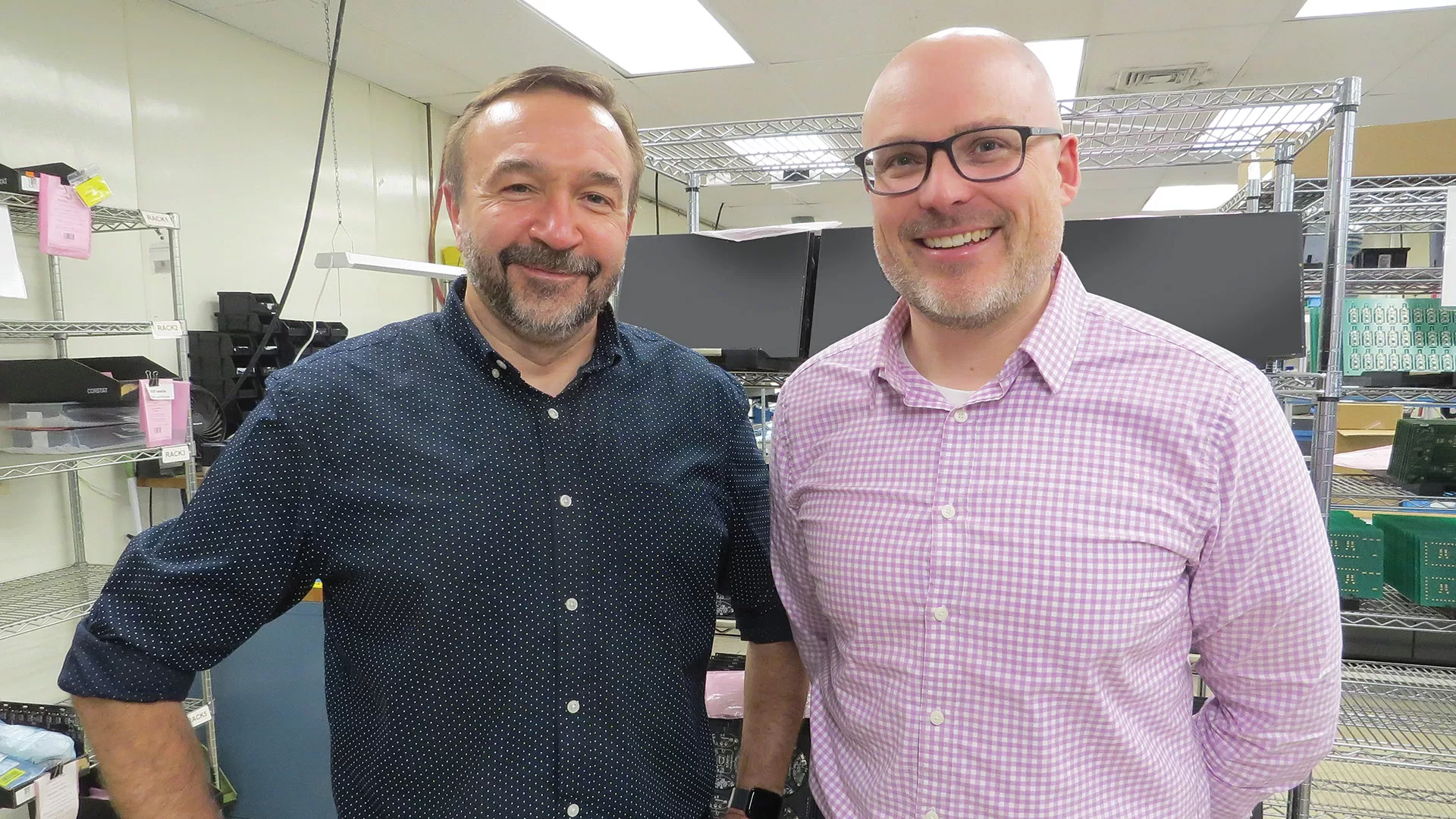Community Spotlight
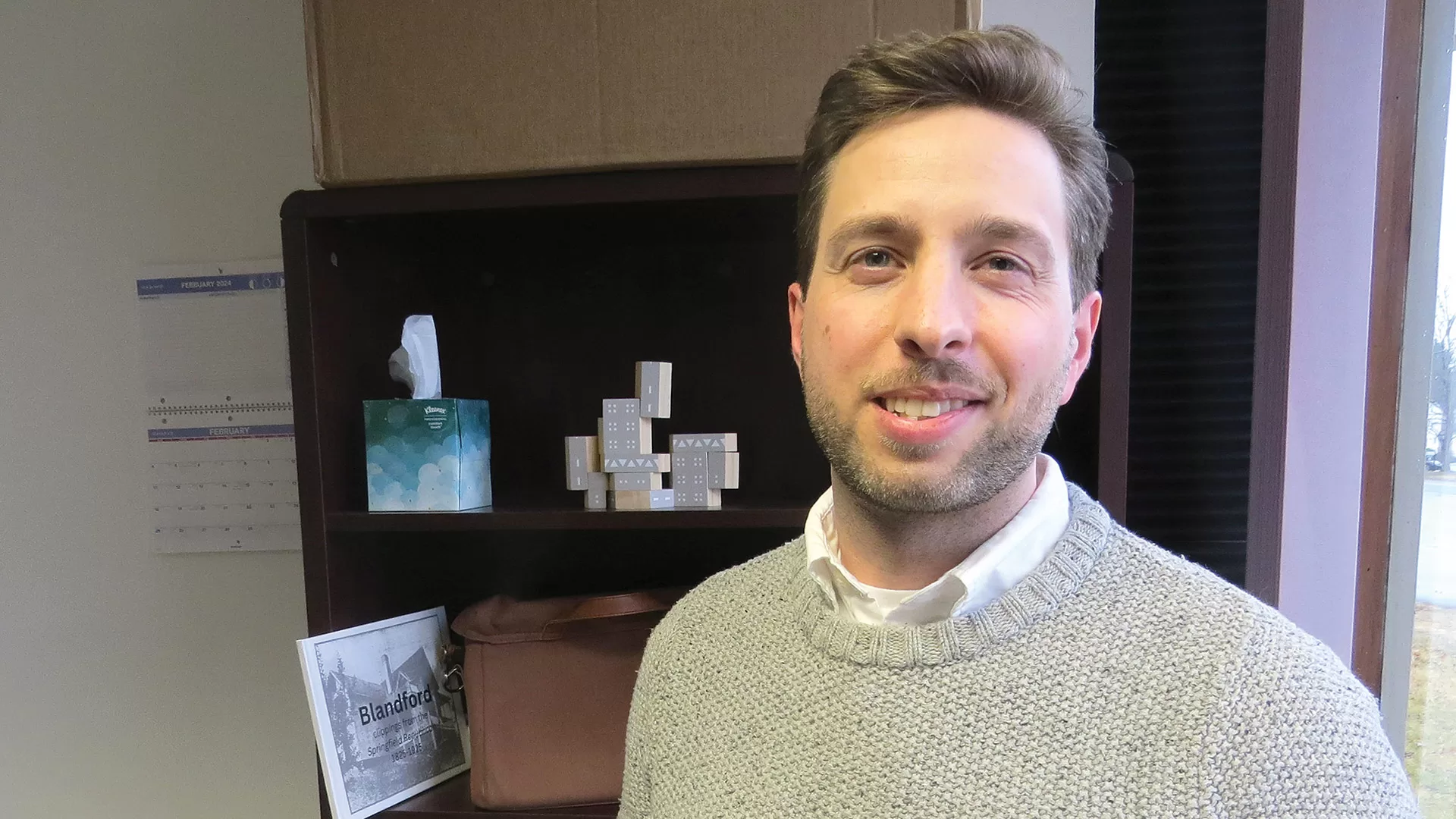
Chris Dunne says one of the town’s priorities is to create more housing.
‘Diverse.’
That’s the one word Jessye Deane kept coming back to as she talked about Deerfield and its business community.
And with good reason.
Indeed, while this community of just over 5,000 is home to Yankee Candle Village, Historic Deerfield, the Magic Wings Butterfly Conservatory, and other tourist attractions, its economy is quite broad, covering sectors ranging from agriculture to craft brewing (which doubles as a tourist attraction, as we’ll see); manufacturing to retail; restaurants to the arts.
They all come together in a picturesque community that is a true destination, said Deane, executive director of the Franklin County Chamber of Commerce, which also calls Deerfield home. And this diversity is certainly an asset, she added, especially as manufacturing declines in many other communities.
“This diversity is the real strength of the economy of Deerfield,” she told BusinessWest, noting that, while large employers like Yankee Candle are always important, the backbone of the community’s economy is small businesses.
And, as noted, they cover all sectors, from restaurants like Leo’s Table in the community’s small but vibrant downtown to Ames Electrical Consulting, a growing business, soon to move to Greenfield, that specializes in helping manufacturers and even municipalities with efforts to automate facilities and processes.
That list also includes manufacturers like Worthington Assembly, which has become noteworthy not only for the circuit boards it produces for a wide range of clients but for a decidedly different culture, one it describes as ‘humanizing manufacturing’.
The obvious goal moving forward is to continue adding more pieces to this diverse business puzzle, said Chris Dunne, Deerfield’s Planning & Economic Development coordinator, while also making the town even more livable and, well, simply providing more places to live.
Indeed, like most other communities in this region — although not all those in Franklin County, where population loss is a pressing issue — Deerfield needs more housing, said Dunne, adding that creating more is part of a larger effort to repurpose land and property in what he called the town campus.
“Approximately 45% of Deerfield residents are over age 55, so there is a definite need for senior housing.”
This is a collection of buildings, many of them currently or soon to be town-owned, including the current Town Hall, two churches, and a former elementary school, some of which could likely be converted to senior housing, said Denise Mason, chair of the town’s Planning Board, adding that there is real need in this category, and if it is met, other homes could become available to younger families.
“Approximately 45% of Deerfield residents are over age 55, so there is a definite need for senior housing,” Mason said. “And there is a housing issue across our region, and especially in Deerfield. We’re hoping that by building senior housing — and we’re looking to add approximately 32 units — that would free up some of the other homes, because we do have some older seniors who would like to downsize, but they have no place to move to.”
For this, the latest installment of its Community Spotlight series, BusinessWest turns the lens on Deerfield, where an increasingly vibrant community and ever-changing destination comes into focus.
Developing Stories
They are referred to as the ‘1821 Building’ and the ‘1888 Building,’ respectively, because that’s when they opened their doors.
The former is a long-closed church, and the latter is the aforementioned former elementary school that, with the help of a $4 million federal earmark, is being eyed as a replacement for the current town offices, built in the ’50s and now outdated and energy-inefficient.
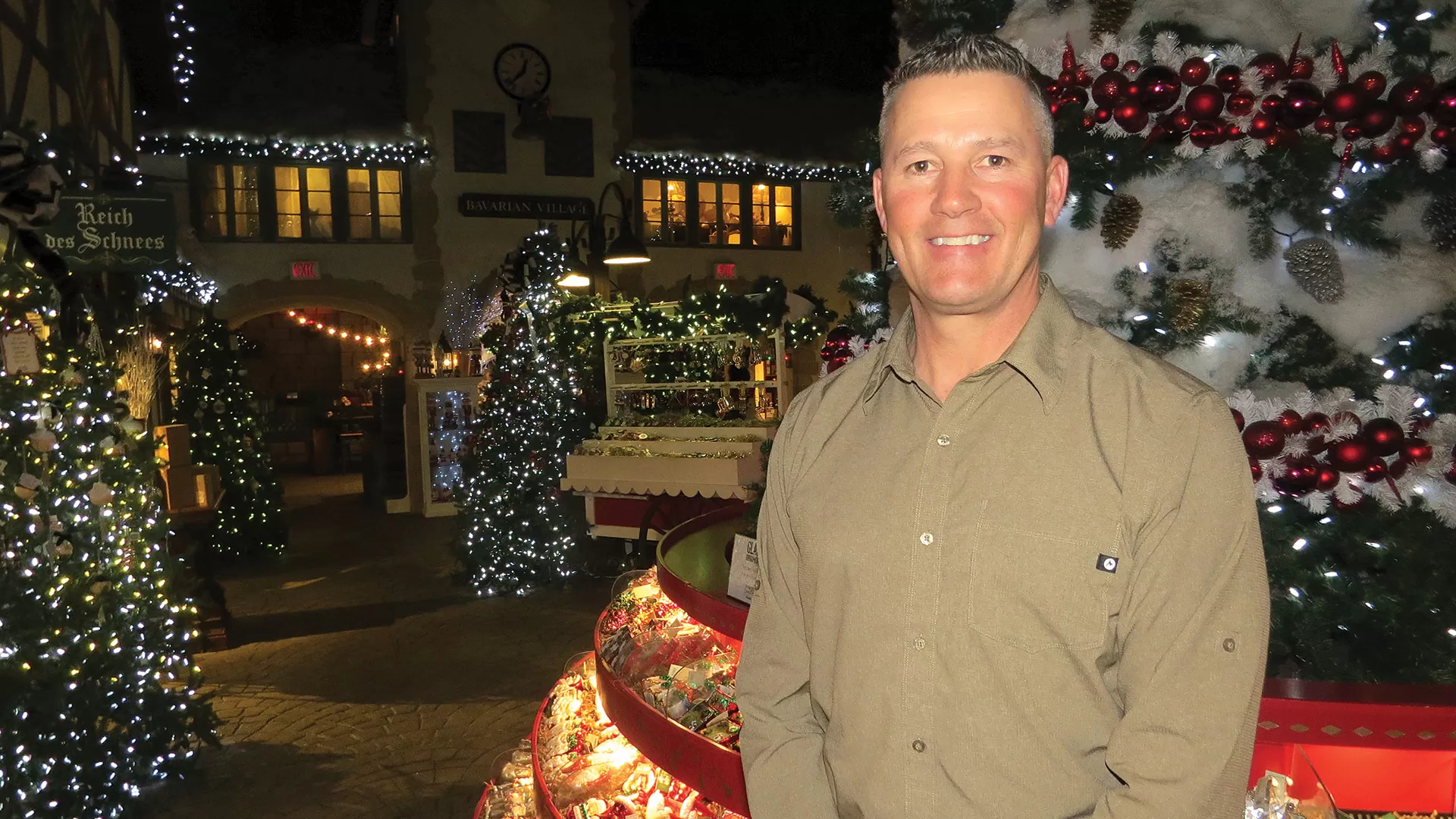
Wade Bassett says Yankee Candle is one of many intriguing draws that have helped transform Deerfield into a true destination.
Transformation of those two historic properties tops the list of municipal initiatives in Deerfield, Dunne and Mason said.
And if town offices can be moved to the renovated school, new uses, perhaps senior housing, could be found for the current Town Hall, which, as noted, is an aging, inefficient structure.
These properties and others sit on what is called the campus, a slice of land, most of it town-owned, between North Main Street and Conway Street that includes several structures, including Town Hall, the 1821 and 1888 buildings, the town’s senior center, a ballfield, and a second church, St. James Roman Catholic Church, and its rectory, which the town may acquire with an eye toward preservation and reuse, perhaps for more senior housing, said Mason, adding that a request for proposals will soon be issued for that property.
As noted, there is real need for this type of housing, said Mason, noting that, if it is created, homes will come on the market, opening the door for more families to move to the community.
Meanwhile, new senior housing on the campus and more young families would provide a boost for the nearby downtown, said Dunne, adding that, while that area is vibrant, there are some ‘infill projects,’ as he called them, to contend with, including a long-vacant Cumberland Farms (a new, much larger one was opened on Route 5).
Other initiatives include ongoing development of a municipal parking lot with EV chargers, one complete with a large amount of green space to counter all the paved surfaces downtown — and a Complete Streets project that include improvements to sidewalks and adding a tree belt to downtown streets.
While there’s a concerted effort to create more housing inventory for those who want to live in Deerfield, there’s already a deep portfolio of attractions for those who want to visit.
“Tree House is driving a lot of traffic to this area, with their beer and with their concerts.”
Yankee Candle has long been the mainstay, and it continues to evolve in this anchor role, said Wade Bassett, director of Sales and Operations at Yankee Candle Village.
But the tourist sector, like the overall economy, is diverse, boasting everything from butterflies to history lessons at Historic Deerfield to the latest draw — craft beer and accompanying events, especially at Tree House Brewery, now occupying the large campus that was once home to publisher Channing Bete.
That campus incudes a concert venue that brings thousands of people to Deerfield for shows, said Dunne, adding that the brewery is working with town officials to increase the limit for attendance so it can bring larger acts to that campus and thus increase the ripple effect.
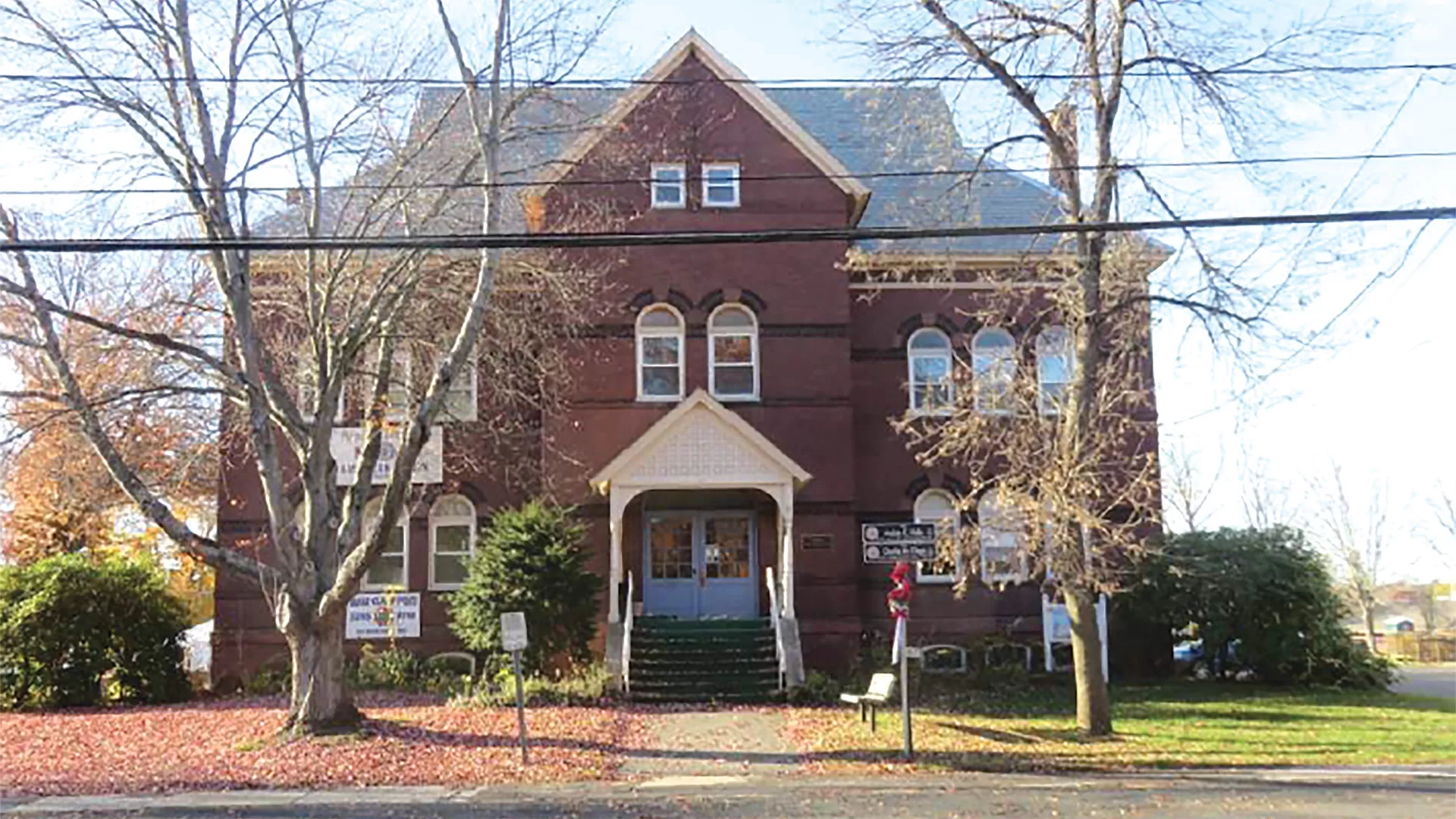
This 19th-century building is among the properties in the town ‘campus’ being eyed for renovation.
And that effect is already considerable, said Jen Howard, owner of Leo’s Table, a breakfast and lunch restaurant on North Main Street, named after her grandfather, who owned and operated a similar establishment in Fitchburg after returning from military service.
Howard said she explains the name on a regular basis, adding that many guests will ask her male kitchen employee if he is Leo.
Those guests run the gamut, she said, noting that there is a solid core of locals, many of them senior citizens, but many diners are coming on their way to attractions like Yankee Candle, the butterfly conservatory, and, increasingly, Tree House.
“We even see some from the parking lot — people charging their vehicles will come in,” she told BusinessWest, adding that a much larger boost comes from the tourist attractions, which fuel many other hospitality-related businesses.
Staying Power
At Yankee Candle, they call it the “golden key.”
That’s the name of a long-standing program, a tradition, really, at the company, whereby one family, or an individual guest, is chosen to receive an actual, and quite large, golden key, which they are required to wear, and which entitles them to enjoy all the many experiences at the Village for free.
Deerfield at a Glance
Year Incorporated: 1677
Population: 5,090
Area: 33.4 square miles
County: Franklin
Residential Tax Rate: $13.85
Commercial Tax Rate: $13.85
Median Household Income: $74,853
Median Family Income: $83,859
Type of Government: Open Town Meeting
Largest Employers: Yankee Candle Co., Pelican Products Inc.
* Latest information available
“They can enjoy Wax Works, they can fill a candy jar, they can get some ice cream at Ben & Jerry’s — it gives a next-level experience to the guest,” said Bassett, adding quickly that the program was designed to engage not only guests, but employees at the Village as well. Indeed, each day a different team member is assigned the task of deciding who, if anyone, is worthy of the golden key, which is awarded for many good reasons, from a 100th birthday to a wedding anniversary to marking one’s final round of chemotherapy.
“Recently, we had two people get engaged in our Black Forest, and one of our employees came back and said, ‘we just had an engagement in our store — why don’t we give them the golden key?” Bassett went on, adding that the program is just one way the Village strives to heighten what is still in most respects a retail experience and take it to the next level.
That level has been raised continuously over the more than 30 years that the Village has been operating, he said, adding that the facility, which is in seemingly constant motion and changing with the holidays and seasons — Easter and April school vacation are next on the schedule, and programs are already being developed — is now part of a broad effort to make Deerfield and all of Franklin County a true destination.
Indeed, like others we spoke with, Bassett said Deerfield has become a regional tourism hub, with a variety of attractions that can broaden a visit from a few hours to an entire day — or even longer.
Tree House has been an important addition to the mix, he told BusinessWest, adding that it is part of a craft-beer trail, if you will, along with Berkshire Brewing nearby in the center of Deerfield. But Tree House has become a much bigger draw with its concerts and other types of events.
“Tree House is driving a lot of traffic to this area, with their beer and with their concerts,” Bassett said, adding that this traffic is finding its way to different stops in the area, including Yankee Candle.
Deane agreed, and said that the goal in Deerfield, and across Franklin County, is to simply “extend the stay.” Elaborating, she said the community has Yankee Candle to bring visitors in, but it also has Tree House, Berkshire Brewing, Historic Deerfield, and other attractions to keep them there for an extended stay — and bring them back again.



